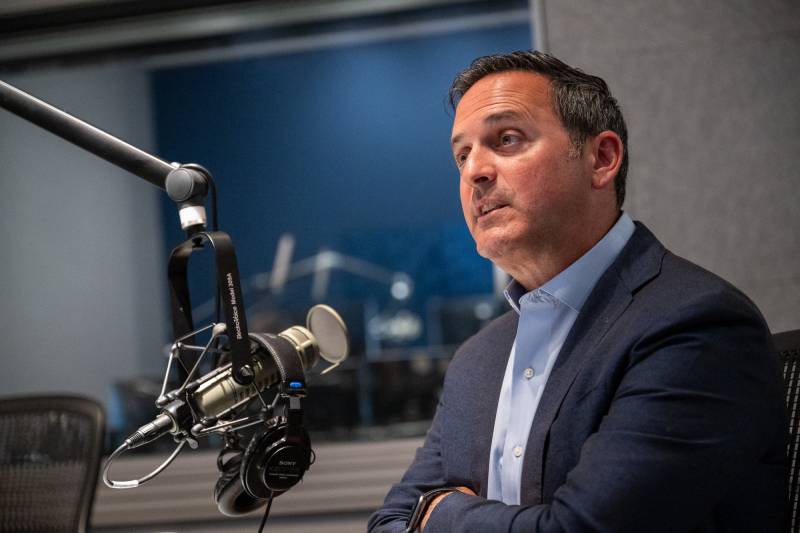A moderate Democrat, Safaí has attempted to contrast himself from some of his opponents who have come down harshly on street homelessness and drug-related issues. Safaí said the city needs to hold drug dealers accountable but criticized Mayor London Breed and candidate Mark Farrell for relying too heavily on sweeping encampments and arresting drug users as a solution.
Safaí pointed to overcrowding in the city’s jail population, which he said has been amplified by the renewed push to arrest drug users and people experiencing homelessness.
“The mayor’s approach has been ‘let’s arrest our way out of this drug and overdose crisis,’” Safaí said, calling the approach ineffective. “They are arrested, they clog the jails, then they are released.”
He advocates for more sober living options citywide and suggests increasing measures like offering bus tickets out of the city, a program San Francisco began in 2005. He also emphasized the need for more behavioral health beds, drug treatment facilities and overdose prevention sites.
“We can’t arrest our way out of this crisis,” Safaí said, deeming it “a public health crisis.”
Firing the SFMTA head is a “top priority”
If elected, the supervisor said one of his first priorities would be appointing a new head for San Francisco’s Municipal Transit Authority, a position currently held by Jeffrey Tumlin. He said riders have been frustrated by poorly communicated changes in service, while business owners, along with transit coordinators, are frustrated over delayed projects affecting foot traffic and sales.
“You can’t let department heads be there in perpetuity,” Safaí told KQED.
Safaí is campaigning on promises to better hold department heads accountable across the board. He helped kickstart audits of the city’s contracts with nonprofits, the first of which led to an FBI investigation finding that the group was illegally selling housing vouchers to friends and family.
He is also open to the idea of replacing San Francisco Police Chief Bill Scott.
“He is the longest serving Chief of Police in the last 50 years,” he said. “It’s time to bring in some new leadership, and I think we can have that conversation about many, many departments.”
Willie Brown’s legacy shaped his pathway in San Francisco politics
Safaí got his start in city government, working as an intern to a city councilor in his hometown of Cambridge, Massachusetts. That later helped launch his career in San Francisco’s City Hall, where he worked under former Mayors Gavin Newsom and Willie Brown, who was particularly influential on his leadership style, Safaí said.
“That experience, talking about working families and people that are trying to survive, gang violence and how it impacts every day, that was my beginning, and I got that start under Mayor Brown.”

